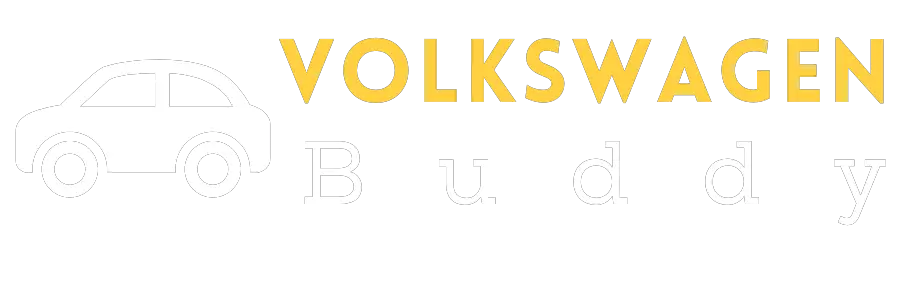7 Reasons Your Volkswagen Jetta Is Misfiring
Engine misfires are a common problem in Volkswagen Jettas, and there are a number of different causes that can lead to this issue. In this article, we will discuss the most common causes of misfires in Volkswagen Jettas, as well as the symptoms that you may experience if your Jetta is misfiring. We will also provide some tips on how to diagnose and fix the problem.
So, What Causes A Volkswagen Jetta To Misfire?
What causes a Volkswagen Jetta to misfire?
There are many different things that can cause a Volkswagen Jetta to misfire. Some of the most common causes include:
A dirty or faulty spark plug: A dirty or faulty spark plug can cause the spark to be weak, which can lead to misfiring.
A bad ignition coil: An ignition coil is responsible for providing the spark that ignites the air-fuel mixture in the cylinder. A bad ignition coil can cause the spark to be weak or misfire.
A faulty fuel injector: A fuel injector is responsible for delivering fuel to the cylinder. A faulty fuel injector can cause the cylinder to receive too much or too little fuel, which can lead to misfiring.
A clogged or restricted air filter: An air filter helps to keep dirt and debris out of the engine. A clogged or restricted air filter can cause the engine to receive less air, which can lead to misfiring.
A problem with the engine’s computer: The engine’s computer is responsible for controlling the engine’s operation. A problem with the engine’s computer can cause the engine to misfire.
If you are experiencing misfires in your Volkswagen Jetta, it is important to have the vehicle diagnosed by a qualified technician to determine the cause of the misfire and to have the problem repaired.
What Causes a Volkswagen Jetta to Misfire?
A misfire occurs when one or more of your Volkswagen Jetta’s cylinders does not fire properly. This can cause a variety of problems, including decreased fuel economy, increased emissions, and a rough running engine. There are a number of different things that can cause a misfire, but some of the most common include:
A bad spark plug: Spark plugs are responsible for igniting the air-fuel mixture in your Jetta’s cylinders. If a spark plug is damaged or worn out, it may not be able to produce a strong enough spark to ignite the mixture, which can lead to a misfire.
A bad ignition coil: The ignition coil is responsible for providing the high voltage needed to fire the spark plugs. If the ignition coil is faulty, it may not be able to provide enough voltage, which can also cause a misfire.
A dirty or clogged fuel injector: Fuel injectors are responsible for delivering fuel to the cylinders. If a fuel injector is dirty or clogged, it may not be able to deliver enough fuel to the cylinder, which can also lead to a misfire.
A faulty camshaft or crankshaft sensor: The camshaft and crankshaft sensors are responsible for providing the engine computer with information about the position of the camshaft and crankshaft. If either of these sensors is faulty, the engine computer may not be able to properly time the ignition and fuel delivery, which can lead to a misfire.
A bad catalytic converter: The catalytic converter is responsible for converting harmful exhaust gases into less harmful gases. If the catalytic converter is clogged or damaged, it may not be able to do its job properly, which can lead to a misfire.
Symptoms of a Misfire
There are a number of symptoms that can indicate that your Jetta is misfiring. These include:
Rough running engine: A misfiring engine will often run rough, with a hesitation or jerking motion.
Engine knocking: A misfiring engine may also produce a knocking or pinging sound.
Increased emissions: A misfiring engine will often produce increased emissions of carbon monoxide and hydrocarbons.
Decreased fuel economy: A misfiring engine will often experience decreased fuel economy.
Check engine light: The check engine light is a warning light that indicates that there is a problem with your Jetta’s engine. If your check engine light comes on, it is a good idea to have your Jetta checked by a qualified mechanic.
Diagnosing a Misfire
If you suspect that your Jetta is misfiring, it is important to have it diagnosed by a qualified mechanic. The mechanic will use a variety of diagnostic tools to determine the cause of the misfire. These tools may include:
A scan tool: A scan tool can be used to read the codes stored in your Jetta’s engine computer. These codes can provide valuable information about the cause of the misfire.
A spark plug tester: A spark plug tester can be used to check the spark plugs for damage or wear.
A fuel injector cleaner: A fuel injector cleaner can be used to clean dirty or clogged fuel injectors.
A camshaft or crankshaft sensor tester: A camshaft or crankshaft sensor tester can be used to check the camshaft and crankshaft sensors for proper operation.
A catalytic converter test: A catalytic converter test can be used to check the catalytic converter for proper operation.
Treating a Misfire
The treatment for a misfire will depend on the cause of the problem. Some of the most common treatments for a misfire include:
Replacing the spark plugs: If the spark plugs are damaged or worn out, they should be replaced.
Replacing the ignition coil: If the ignition coil is faulty, it should be replaced.
Cleaning or replacing the fuel injectors: If the fuel injectors are dirty or clogged, they should be cleaned or replaced.
Replacing the camshaft or crankshaft sensor: If the camshaft or crankshaft sensor is faulty, it should be replaced.
Replacing the catalytic converter: If the catalytic converter is clogged or damaged, it should be replaced.
Preventing Misfires
There are a number of things you can do to help prevent misfires, including:
Keeping your Jetta’s engine properly tuned: This includes changing the oil and oil filter regularly, as well as replacing the spark plugs and
MUST READ THIS: What Causes Volkswagen Jetta To Overheat
FAQs: What Causes a Volkswagen Jetta to Misfire?
What is misfiring?
Misfiring is when a spark plug fails to fire, causing the engine to run unevenly and produce less power. It can be caused by a number of factors, including:
A dirty or faulty spark plug
A bad ignition coil
A problem with the fuel injector
A clogged air filter
A problem with the timing belt or chain
What are the symptoms of misfiring?
The symptoms of misfiring can include:
A rough idle
A loss of power
A burning smell
Black smoke coming from the exhaust
A check engine light on
How can I fix a misfiring Volkswagen Jetta?
The first step is to diagnose the problem. This can be done by a qualified mechanic, who will use a diagnostic scanner to check for codes. Once the problem has been diagnosed, the mechanic can then fix it.
Some common repairs for misfiring include:
Replacing the spark plugs
Replacing the ignition coils
Cleaning or replacing the fuel injectors
Replacing the air filter
Replacing the timing belt or chain
How can I prevent misfiring?
You can prevent misfiring by:
Keeping your Volkswagen Jetta well-maintained
Changing the spark plugs and ignition coils according to the manufacturer’s recommendations
Cleaning or replacing the fuel injectors every 100,000 miles
Replacing the air filter every 30,000 miles
Keeping the timing belt or chain properly adjusted
What are the risks of driving a Volkswagen Jetta with misfiring?
Driving a Volkswagen Jetta with misfiring can damage the engine and reduce your gas mileage. It can also increase your emissions and make your car difficult to drive. If you have a misfiring Volkswagen Jetta, it is important to have it fixed as soon as possible.






